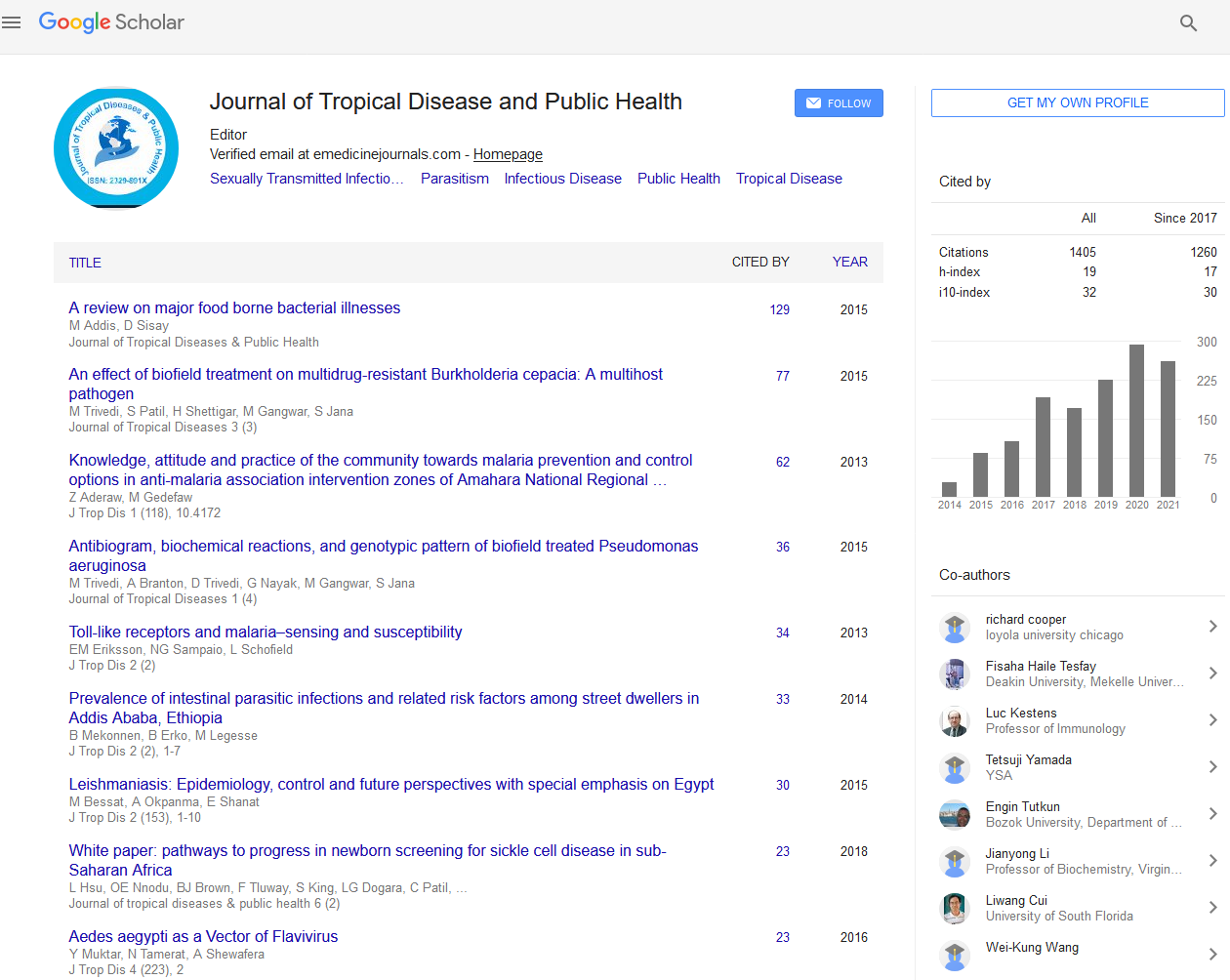Indexed In
- Open J Gate
- Academic Keys
- ResearchBible
- China National Knowledge Infrastructure (CNKI)
- Centre for Agriculture and Biosciences International (CABI)
- RefSeek
- Hamdard University
- EBSCO A-Z
- OCLC- WorldCat
- CABI full text
- Publons
- Geneva Foundation for Medical Education and Research
- Google Scholar
Useful Links
Share This Page
Journal Flyer

Open Access Journals
- Agri and Aquaculture
- Biochemistry
- Bioinformatics & Systems Biology
- Business & Management
- Chemistry
- Clinical Sciences
- Engineering
- Food & Nutrition
- General Science
- Genetics & Molecular Biology
- Immunology & Microbiology
- Medical Sciences
- Neuroscience & Psychology
- Nursing & Health Care
- Pharmaceutical Sciences
Abstract
Clinical, Biological and Ct Predictors of In-Hospital Mortality in Ischemic Stroke Patients in Central Africa
Michel Lelo Tshikwela, Gloria Bugugu Cinama, Stéphane Yanda Tongo, Emmanuel Ndoma Kabu, Fabien Kintoki Mbala, François Lepira Bompeka and Euletère Kintoki Vita
Background: Stroke a major public health problem, its management remains a challenge for the medical professionals. We investigated the clinical, simple biological and tomographic determinants of outcome in patients suffering of ischemic stroke.
Materials and methods: This prospective study was conducted at Kinshasa university hospital from January 2011 to June 2014. A total of 104 consecutive patients with first-ever ischemic stroke confirmed by computed tomography examination were enrolled for the study. The parameters of interest were clinical, routine biochemical and radiological data within the 3 first days of symptom onset. Logistic regression was used to identify independent determinants of mortality risk.
Results: The average age of patients was 62 ± 14 years old with 68% of male. Among the 22 patients (21%) who died, in univariate analysis, factors associated with lethality were the Glasgow score <9, higher elevated erythrocyte sedimentation rate >40 mm/1h, higher leukocytosis > 10.000 elements/mm3 and non-lacunar brain infarct. On multiple logistic regression analysis, higher elevated erythrocyte sedimentation rate (OR 1.8; 95% CI 1.22 to 89.35; p=0.032), lesion located in infra-tentorial area (OR 4.7; 95% CI 1.30 to 16.38; p=0.017) and hemorrhagic infarct (OR 10.6; 95% CI 2.21 to 77.89; p=0.005) were essentially independent determinants of ischemic stroke mortality.
Conclusion: The study seems to determine factors associated with mortality in patients suffering from cerebral infarction. Glasgow score and routine biomarkers may be useful in low setting area to assess mortality in ischemic stroke patient.


